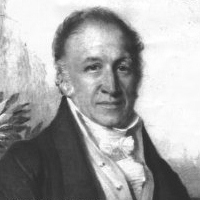Richard Sharp (1759 – 1835), born in Newfoundland, was a hatter and later prominent merchant in London. He was also a Dissenter, becoming the champion of adult education. His powers of persuasion were responsible for establishing the forerunner of the University of London, the London Institution, open to scientific scholars who were denied entrance to Cambridge and Oxford because of their unorthodox religious beliefs.
Lansdowne House, along with its rival Holland House, drew Sharp into its orbit not only for these accomplishments, but because of his conversation.
Yes–conversation. A highly sought-after quality in Regency England
You must remember from Anne Elliott’s declaration from Jane Austen’s Persuasion. And William Elliott’s equally fine rejoinder:
“My idea of good company…is the company of clever, well-informed people, who have a great deal of conversation; that is what I call good company.’
‘You are mistaken,’ said he gently, ‘that is not good company, that is the best.”
London was filled with good conversationalists. Town wits, they were called, frequently evaluating one another and publishing their findings in essays and other periodicals for the delectation of the ton.
Byron (1788 – 1824) was a notable practitioner of the art–his poetry the vehicle for satirizing other conversationalists. Wordsworth was frequently a target for his notions of solitude and the love of the sublime. But when it came to describing Sharp, Satire completely failed her master, giving way to her cousin, the Simple Truth.
“A man of elegant mind.”
Indeed, this is where we find not just the good, but the best.
But how? The key lies in the recollection from a fellow Lansdowne House intimate, Thomas Babington Macauley, 1st Baron Macauley (1800 – 1859)
“One thing I have observed in Sharp which is quite peculiar to him among Town wits and diners-out – he never talks scandal. If he can say nothing good of a man he holds his tongue. I do not of course mean that in confidential communications about politics he does not speak freely of public men, but about the follies of individuals I do not believe that – as much as I have talked with him.”
Richard Sharp remained single all his life. Yet he was moved to adopt a little girl, orphaned in a volcanic eruption in the West Indies.
He never wanted to be remembered after he died.
Sadly, his wish was granted, with one or two notable exceptions, like the following admonishment from a reader of Gentlemen’s Magazine and Historical Chronicle 1869) that reads like a Who’s Who list of the Regency:
“…your serial is calculated to mislead your numerous readers by giving them the idea that (Charles Kirkpatrick Sharpe) was the celebrated person who obtained the sobriquet of ‘Conversation Sharp’ ….. From his extraordinary conversational powers, and his attainments generally, he became the intimate friend of all the leading men of his time, especially of the Whig party, of whom space will not permit me to name more than a few–as Lord Holland, Marquis of Lansdowne, Duke of Somerset, Earl of Darnley, Lord Eskine (who consulted him constantly), Grattan, Curran, Plunkett, Campbell, the poet Moore, Sir James Scarlett, afterwards Lord Abinger, Wordsworth, Rev. Sydney Smith, &etc….A reference to the memoirs (amongst others) of Francis Horner, James Macintosh, Sir Samuel Romilly, Samuel Rogers, the poet, and Moor’s Life of Byron, will at once settle the identity of Mr. Richard Sharp.”


Thank you for posting this. I have a great interest in the Whigs and all my characters are in that party.
LikeLike
It is pure serendipity my fascination with Lansdowne House led me to the Whig party. I hope I can provide some inspiration and helpful research for you with these little posts.
LikeLike
Reblogged this on Ella Quinn ~ Author and commented:
From Angelyn’s Blog
LikeLike
many thanks, Ella.
LikeLike
Quite interesting. As usual, thanks for an informative post!
LikeLike
Thank you, Ally.
LikeLike
Another wonderful article, Angelyn. I always enjoy learning new things, beautifully researched and written on your blog. 🙂
LikeLike
You are so kind, Ashley.
LikeLike
He does look like Geoffrey Rush. LOL! I’d love to spend one evening listening to such conversations. Cultured tones, refreshing vocabulary, thoughtful prose – I imagine it would be quite an evening!
LikeLike
Well, I think it helped to have the Hermaphrodite around. And I adore Geoffrey Rush. He quite elevates Pirates from the amusement park ride it was really meant to be.
LikeLike
These details form only a small part of this man’s remarkable accomplishments, but it is good to see him being publicised in this way. His incredible life-story should be better known – it is surely the stuff of plays, dramas, films and operas. The image is the only one of him known to exist. Is it too much to say that he was a genius ? See his full biography in the British Library or a précis on Wikipedia at https://en.wikipedia.org/wiki/Richard_Sharp_(politician) .
LikeLike
I agree–it Is difficult to find a comprehensive biography on the man. Such a reference would be an invaluable resource for writers focused on the Regency era.
LikeLike
Try, http://www.amazon.co.uk/s/ref=nb_sb_noss?url=search-alias%3Dstripbooks&field-keywords=conversation+sharp&rh=n%3A266239%2Ck%3Aconversation+sharp
There are few copies in the US, try Davis University. Newfoundland has several in their state libraries.
LikeLike
I’m requesting the Davis copy through inter-library loan. A pity I can’t get a copy of my own.
LikeLike
Pingback: The Most Popular Man of the Regency by Angelyn Schmid | The Beau Monde